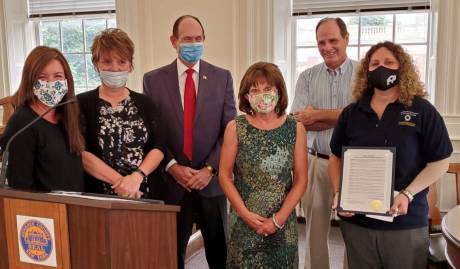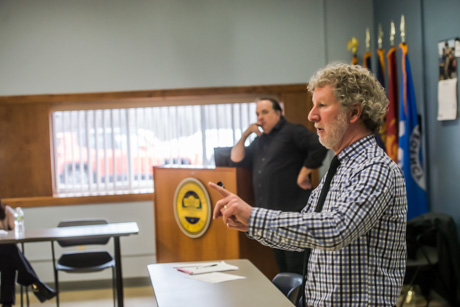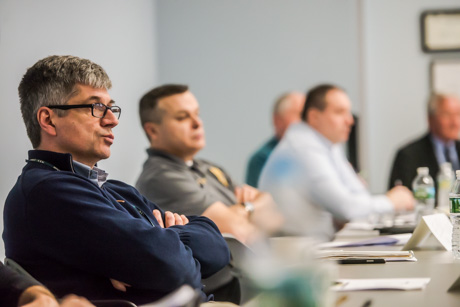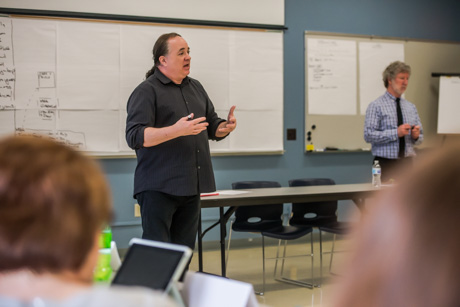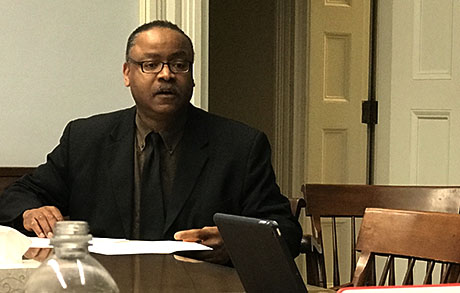How do rural counties with limited resources combat an issue as multifaceted as heroin and opiate addiction?
Quite simply, they collaborate to find common-sense practices to beat the dragon.
In January, officials, doctors, healthcare providers, and community members from three counties -- Genesee, Orleans and Wyoming -- formed the GOW Opioid Task Force.
Its goal is to not only raise awareness of the growing epidemic but to also find and compile: a list of resources available to addicts and their families; data on the number of overdoses, deaths, and uses of naloxone within each county; and identifying roadblocks to treatment.
During the July meeting, a roadmap of sorts was laid out for the Task Force.
From the time an individual is born, they are, to some degree, rated on performing tasks independently. Doctors gauge a child’s progress: Sits independently. Walks independently. Teachers grade a student’s performance: Works independently. It’s a skill desirable to some employers: Must be able to work independently.
It is a mantra instilled in a person's mind from a very young age: Be an individual. Don’t follow the crowd. Learn to be independent. Yet, there are times, when being independent becomes counterproductive to the needs of a community.
Although each of the GOW counties are afflicted with the same problem – the increase in overdoses and deaths due to heroin and opiates – independently, there are gaps in services and help for both addicts and their families. However, collectively, the Task Force can help fill those gaps.
In an effort to find where each county is lacking and how to get funding for the resources it needs, the Task Force determined three areas to address: community education and action, data compilation and access to care.
Community education and action
Three goals were created to better educate the public:
• Educate students, parents and community about the dangers of heroin and opioid use – Narcan training and education, sharps and medicine disposal sites, and develop materials for distribution;
• Identify resources and local partnerships to help prevent use – pharmacies, law enforcement, recovery services, and mental health service; and
• Develop recommendations for future goals and action steps to prevent use – encourage attendance and participation in Task Force meetings, recovery coaching, peer speakers, and more.
Data
Part of the requirements for applying for State funding is to have the data and statistics to back up the need. However, compiling those numbers becomes a collaborative effort between multiple agencies. Additionally, the task is further hindered by the fact that the Monroe County Medical Examiner’s (ME) Office handles cases from its own and the GOW counties. Subsequently, toxicology reports are often not received back for six months or more.
According to a recent report, the Monroe County Medical Examiner’s Office has performed 1,020 autopsies in 2016. In 2015 it was closer to 900. In 2008 approximately 975 were performed and in 2005 860. The years 2012 and 2013 both showed approximately 880.
The goals of this group are to develop a tool to track data, identify the data each county already has, and perform a gap analysis to identify missing data and create a plan to overcome any barrier.
Access to care
Again, a barrier addicts and family members face is access to care in relative proximity to where they live.
Officials say when an addict is ready to get the help they need to begin the recovery process, there is an immediacy to their need.
One of the goals of this group is to map out the access to care in the Western Region Naturally Occurring Care Network (NOCN).
The NOCNs include the Finger Lakes, Monroe, Southeastern, Southern, and Western regions of New York State.
In addition to finding a place to receive care, the group also identified eight groups of potential entry points for families and individuals in crisis. They include hospital emergency rooms, crisis hot line, primary care physicians, law enforcement, community-based organizations, healthcare homes, community-based groups, and schools and colleges.
Nationwide, every 17 minutes someone dies from an opioid overdose. About two years ago, there were 100 deaths in Erie County. In 2015, it more than doubled. In 2016, that number could reach over 500. That’s about 10 per week. February alone recorded 23 overdose deaths in just one week.
In Wyoming County, between 2010 and 2014 the number of opioid-related emergency department admissions increased 47.6 percent – 42 and 62. The number of opioid-related inpatient hospital admissions rose from 61 to 91 respectively – a 49.2-percent increase.
According to a recent article in The Batavian, there were five deaths in Genesee County that the Monroe County Medical Examiner attributed to the overuse of opiate-related drugs in 2013.
In 2016, 17 deaths with toxicology completed were attributed to drug mixtures that included opiates, with four toxicology reports for last year still pending.
To date in 2017, there are seven deaths where toxicology is still pending.
Of the 17 known OD-related deaths in 2016, only five were attributed to heroin mixed with other drugs, whether prescription drugs and/or over-the-counter medications. (Note: the ME for 2016 was Erie County.)
There were nine deaths caused by a combination of prescription opiates mixed with other drugs.
There was one death caused by "acute and chronic substance abuse."
Of the 18 overdose deaths in 2015, 14 involved prescription opiates used in combination with other drugs and two were caused by heroin used in combination with other drugs.
In 2014, there were 12 drug-induced deaths. Nine of the 12 involved prescription opiates combined with other drugs. Heroin, used singularly or in combination with other drugs, contributed to three deaths.
Between 2010 and 2014 those who were admitted for treatment for any opioid in Western New York was 7,679 in 2010. By 2014, the number of people seeking treatment rose by almost a third – 10,154 – a 32-percent increase.
Across the state, those in treatment for heroin use was 55,900 in 2010; in 2014, the number was 77,647. Deaths across the state due to heroin overdose increased 163 percent (215 in 2008, and 637 in 2013) and opioid overdoses increased 30 percent (763 to 952).
While nearby counties like Erie and Monroe have access to more mental health services and rehabilitation centers due to their populations, Genesee, Orleans and Wyoming counties struggle to find those same services closer to home for their residents.
The next meeting date and time for GOW Opioid Task Force to be determined.
For more information, Kristine Voos at Kristine.Voos@co.genesee.ny.us
